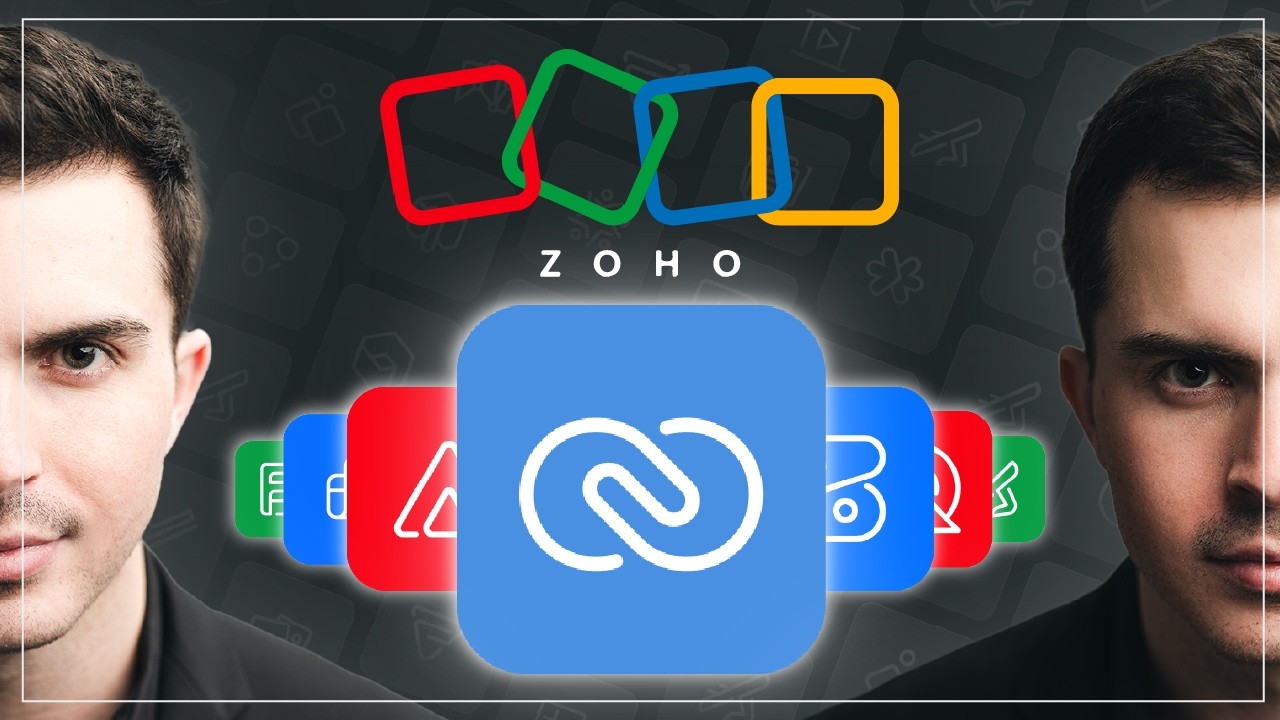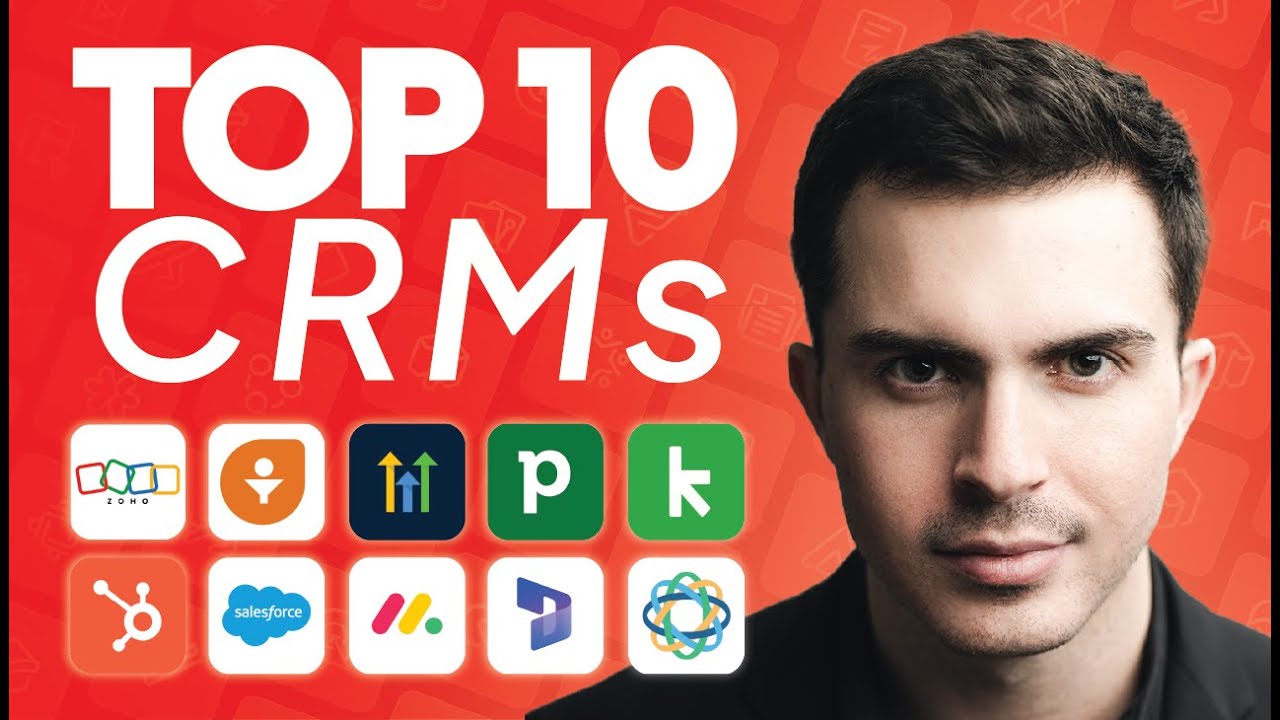
Drew Brockbank
August 20, 2025
5 mins
9 min





Choosing the right CRM platform is one of the most important technology decisions your business will make. I’ve worked with numerous teams evaluating the "Zoho vs. HubSpot' decision, and here’s what I can tell you: both CRMs are powerful, but your ideal choice will depend on your team’s goals, internal processes, and the level of control you want over customization and cost.
Both HubSpot CRM and Zoho CRM offer marketing automation, sales pipeline tracking, and customer relationship management features. However, how they deliver those features and what it costs to scale differ significantly.
Let’s walk through the details so you can make an informed decision.
A good CRM is the backbone of your customer experience. It helps you manage leads, organize communications, monitor sales activity, and automate marketing efforts. Done right, it can also forecast revenue, highlight bottlenecks in your sales process, and align your sales and marketing teams.
But not every CRM works the same way or works well out of the box. That’s why understanding your options is key.
HubSpot CRM is recognized for its intuitive interface and integrated marketing tools. Zoho CRM is known for its flexibility, customizability, and affordability. Both are excellent, but for different reasons.
HubSpot is ideal for companies that want a polished user experience and are willing to pay more as they grow. Zoho CRM, on the other hand, is more configurable and comes with broader native app integrations, especially if you’re already in the Zoho ecosystem.
This is where things start to diverge. HubSpot CRM offers a free version; however, once you add tools like HubSpot Sales Hub Professional or Marketing Hub, the cost increases significantly. Zoho CRM, on the other hand, offers a generous range of features even at lower-tier pricing.
HubSpot pricing can escalate quickly, especially when you add more users or require features such as workflows, custom reports, or automation. Zoho CRM includes these in lower tiers, making it a more cost-effective solution for businesses that want power and scalability without breaking the bank.
Both platforms offer tools to support the sales process, but Zoho goes deeper into customization.
HubSpot Sales Hub provides pipeline management, deal stages, and a clean user interface that makes onboarding easy for new representatives.
Zoho CRM offers flexibility with custom modules, workflows, and pipeline stages that precisely match your sales process. You can also create custom reports based on deal stage, rep performance, or win/loss data. For teams with complex sales cycles or unique sales processes, this level of customization is a major advantage.
Lead management is strong in both platforms, but Zoho CRM lets you create rules, custom lead stages, and scoring based on behavior. Zoho's AI assistant Zia can even offer predictive sales insights, like which leads are most likely to convert.
HubSpot’s lead scoring works well, but often requires a higher-tier plan to unlock automation features. If your team relies on lead scoring to prioritize outreach, Zoho gives you more tools out of the box.
HubSpot shines here. Its marketing hub is built-in, giving you access to:
Zoho does many of the same things with Zoho Marketing Automation and Campaigns, but it’s more modular: You add the pieces you need. That gives you more control and often saves you money.
HubSpot is more plug-and-play. Zoho requires a bit more setup, but rewards you with more control and lower long-term costs.
Here’s where Zoho CRM really takes the lead.
I’ve helped clients build fully customized dashboards using Zoho Analytics, pulling data from CRM systems, marketing campaign results, and even inventory management insights. Zoho enables you to create custom fields, apps, and detailed reports that align with your key performance indicators (KPIs).
HubSpot’s dashboards are clean and easy to use, but they’re less customizable, especially without upgrading. Zoho's sandbox environment even lets you test changes before rolling them out.
Both platforms enable you to track customer interactions and analyze CRM data, but Zoho offers greater flexibility.
Want to build multiple reports that slice your data by region, product line, or salesperson? Zoho can do it.
Need custom workflows that assign tasks based on customer behavior? Zoho’s got you covered. HubSpot’s reports are attractive and easier to build, but more limited unless you’re paying for top-tier access.
Zoho’s AI assistant, Zia, offers predictive analytics, workflow suggestions, sentiment analysis, and data enrichment. It’s built into the platform and adds serious power.
HubSpot also offers AI features, but they are more focused on content and copy suggestions than true CRM automation. Zia is better suited for sales forecasting, lead insights, and smart process automation.
Both CRMs let you manage contacts, track customer interactions, and log sales activities. The difference? With Zoho, you can customize nearly every aspect of that process, including adding lookup fields, activity scoring, and contact-specific workflows.
HubSpot is easier for beginners but doesn’t offer the same depth of configuration.
HubSpot’s app marketplace is robust. However, Zoho’s native ecosystem is massive, encompassing CRM, Books, Inventory, Campaigns, Analytics, and more. It’s an all-in-one suite if you want it to be.
If you prefer a fully integrated system without relying on third-party tools, Zoho has the edge.
If your business has unique processes, Zoho’s ability to create custom modules and apps is a game-changer. You can customize fields, layouts, and pipelines with minimal effort.
HubSpot offers some custom modules, but only at the Enterprise level, and even then, you’ll face more limits.
Both platforms offer task management, meeting scheduling, and notes. But Zoho’s WorkDrive, Cliq, and Projects tools integrate seamlessly, making internal collaboration smoother.
Zoho also offers CRM feeds, internal chat, and external portals to enable direct involvement of partners and vendors.
You can build customer journeys in both systems. Zoho’s version enables you to track multiple touchpoints across email, web, phone, and chat, all with enhanced data analysis capabilities via Zoho Analytics.
HubSpot excels at visual journey builders, but Zoho still offers deeper data and customization options.
Want to know what channel gets credit for a deal? HubSpot makes last-touch attribution easy.
Zoho can handle attribution reports too, especially when integrated with Zoho Marketing Automation or Google Ads. It’s just more customizable, with support for multi-touch models.
HubSpot is intuitive and modern, making it great for teams with limited CRM experience.
Zoho has a steeper learning curve, but once set up right, it becomes incredibly powerful. That’s where implementation (and a good consultant) matters.
I’ll say it clearly: Zoho is only as good as its implementation. But when done well, Zoho CRM offers a level of customization and automation that HubSpot simply doesn’t match.
HubSpot’s plug-and-play model is appealing, but you’ll quickly run into limitations unless you pay for higher tiers.
Choose HubSpot if you want an easy, all-in-one starter CRM with built-in marketing tools and don’t mind the higher cost as you scale.
Choose Zoho CRM if you want deep customization, scalable pricing, integrated apps, and more control over your data.
I work with organizations that want flexibility, data control, and smart automation, and Zoho delivers all of that. From marketing teams that need detailed analytics to sales reps who want efficient pipelines, Zoho can be tailored to fit your goals.
HubSpot’s app marketplace is robust. However, Zoho’s native ecosystem is massive, encompassing CRM, Books, Inventory, Campaigns, Analytics, and more. It’s an all-in-one suite if you want it to be.
If you prefer a fully integrated system that doesn't rely on third-party tools, Zoho has the edge. And because all apps are built by the same company, integration is smoother and support is more unified.
If your business has unique processes, Zoho’s ability to create custom modules and apps is a game-changer. You can customize fields, layouts, and pipelines with minimal effort.
HubSpot offers some custom modules, but only at the Enterprise level, and even then, you’ll face more limits. Zoho Creator also gives you low-code tools to develop full apps that extend your CRM’s functionality.
Both platforms offer task management, meeting scheduling, and notes. But Zoho’s WorkDrive, Cliq, and Projects tools integrate seamlessly, making internal collaboration smoother.
Zoho also offers CRM feeds, internal chat, and external portals to enable direct involvement of partners and vendors. For teams managing external stakeholders or complex project collaboration, this extra layer of integration is a real productivity boost.
You can build customer journeys in both systems. Zoho’s version enables you to track multiple touchpoints across email, web, phone, and chat, all with enhanced data analysis capabilities via Zoho Analytics.
HubSpot excels at visual journey builders, but Zoho still offers deeper data and customization options. With Zoho, you can even set rules to automate follow-ups based on behavior or lead score.
Want to know what channel gets credit for a deal? HubSpot makes last-touch attribution easy.
Zoho can handle attribution reports too, especially when integrated with Zoho Marketing Automation or Google Ads. It’s just more customizable, with support for multi-touch models. You can also build custom attribution logic if your sales cycle requires it.
HubSpot is intuitive and modern, making it great for teams with limited CRM experience.
Zoho has a steeper learning curve, but once set up right, it becomes incredibly powerful. That’s where implementation (and a good consultant) really matters. Zoho’s UI has improved in recent years, but it’s still best for teams that need power over polish.
I’ll say it clearly: Zoho is only as good as its implementation. But when done well, Zoho CRM offers a level of customization and automation that HubSpot simply doesn’t match.
HubSpot’s plug-and-play model is appealing, but you’ll quickly run into limitations unless you pay for higher tiers. If you’re serious about process alignment and efficiency, Zoho’s setup is worth the upfront investment.
Choose HubSpot if you want an easy, all-in-one starter CRM with built-in marketing tools and don’t mind the higher cost as you scale.
Choose Zoho CRM if you want deep customization, scalable pricing, integrated apps, and more control over your data.
I work with organizations that want flexibility, data control, and smart automation, and Zoho delivers all of that. From marketing teams that need detailed analytics to sales reps who want efficient pipelines, Zoho can be tailored to fit your goals.
If you’re ready to build a CRM that matches your business (not the other way around), Zoho is the way to go.
Looking for guidance on how to best use a CRM for your business? Let’s schedule a time to chat.





Book your free consultation to learn how Zoho should work for your business. We will show you the best practice ways to set it up and use it for your industry so you get the most out of Zoho.


Dive deeper into our expert articles.


